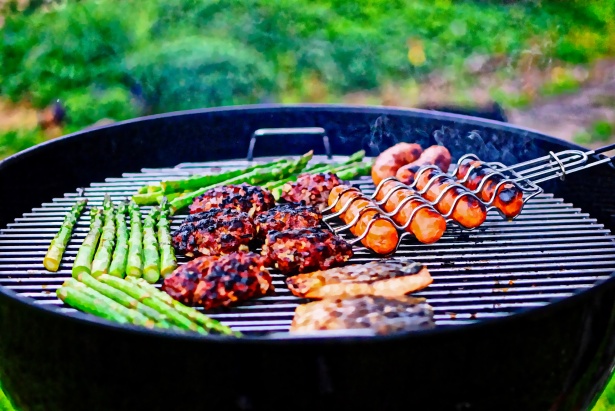Return to News & Updates

BBQ Safety Tips and Precautions

Summer is in full swing and many of us are ready to eat some delicious barbecue food. Before the ignition button is pushed or the charcoal is lit, REMSA would like to remind people of some basic BBQ safety tips and precautions.
Before Starting Your Barbecue:
Test Hoses for Leaks
- Make sure all control knobs are off.
- Move the barbecue to a well-ventilated area.
- Connect the gas supply to the barbecue and check for leaks.
- Slowly open the propane cylinder valve and apply a soap/water solution to all connections.
- Check for expanding bubbles, which indicate a leak.
- Repair all leaks before lighting the barbecue.
Check for Insect Nests and Spider Webs
- Fires can result from the venturi tubes under the burners becoming clogged with spider webs and insect nests.
- Use a flexible brush to clean out the metal tubes.
- It is best to check the manufacturer’s instructions for cleaning instructions.
Replace Worn and Rusted Parts
- This will prevent leaks and help keep everyone safe while grilling.
Clean Everything Thoroughly
- Check inside the barbecue for any blockages and clean them out.
Safety Tips While Barbecuing:
Light it Right
- It is always best to follow the manufacturer’s instructions for lighting the barbecue.
- Make sure the barbecue is on level ground, and away from windows and anything flammable.
- Open the lid before turning on the fuel.
- Make sure the gas valve on the barbecue is shut off.
- Open the valve on the propane tank fully.
- Light the match or depress the barbecue igniter.
- Turn on the gas valve on the barbecue.
- Make sure the color of the flames are blue with a small yellow tip.
Always Barbecue Outside
- Barbecues are designed to be operated outside only.
- Keep the barbecue at least three feet away from your house.
- When the barbecue is not in use, keep it covered and in a shaded area.
- Do not store propane cylinders indoors; and do not store a spare cylinder under the barbecue.
Keep Kids at a Safe Distance
- Since surfaces of the barbecue are hot and can cause severe burns, make sure to keep kids at a safe distance – a barbecue is not a toy to play with.
Never Leave a Barbecue Unattended
- Not only can leaving a lit barbecue unattended ruin a dinner, it can be a safety hazard as grease flare-ups can start fires, causing considerable damage.
Use a Thermometer
- Using a food thermometer is the only way to be sure food is cooked safely.
Shutting it Down
- Always shut the propane cylinder valve off first to let all propane/natural gas clear from the lines.
- Make sure to shut off the gas valve on the barbecue once the flames have extinguished.
- Always close the lid to protect the barbecue from damage and rain.
Transporting Your Propane Cylinder
- Make sure all valves are closed, that the service valve plugs/caps are in place, and that the propane cylinder is in an upright position.
- Always secure propane cylinder in vehicle.
- Do not leave propane cylinder in your car for prolonged periods of time. Propane can be sensitive to heat.
- Every propane cylinder over 12 years from the date it was manufactured must be re-certified by an approved facility.
Charcoal Grills:
The Consumer Product Safety Commission (CPSC) reports that every year about 20 deaths and 400 injuries are treated resulting from carbon monoxide poisoning from charcoal grills.
- Charcoal grills should not be used inside homes, vehicles, tents, or campers, even if ventilation is provided. Carbon monoxide is odorless and colorless; you will not be alerted to the danger until it is too late.
- Never use any flammable liquid other than barbecue starter fluid to start a charcoal barbecue.
- Use the starter fluid sparingly and never put it on an open flame.
- Never add fire starter after you have started your barbecue to speed a slow fire or rekindle a dying fire. The flame can easily flashback along the fluid’s path to the container in your hands.
- Remove the charcoal ashes from the grill and place them into a metal container with a tight-fitting metal lid. Add and mix in water with the ashes and set aside for several days. Dispose of the mixture in accordance with the Department of Sanitation’s guidelines.
- Remove the ashes only after they are completely cooled, and no warm embers remain.
- Always soak coals with water after cooking; they retain their heat for long periods of time.
- Keep damp or wet coals in a well-ventilated area. During the drying process, spontaneous combustion can occur in confined areas.
